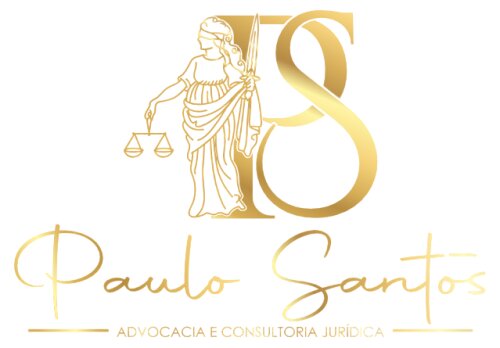
Best Collaborative Law Lawyers in Brazil
Share your needs with us, get contacted by law firms.
Free. Takes 2 min.
Free Guide to Hiring a Family Lawyer
Or refine your search by selecting a city:
List of the best lawyers in Brazil

About Collaborative Law in Brazil
Collaborative Law is an alternative dispute resolution process that emphasizes cooperation and negotiation over adversarial legal proceedings. It allows parties to work together with their own collaborative lawyers and sometimes other professionals, such as child specialists or financial advisors, to reach a settlement that addresses the interests of all involved. In Brazil, Collaborative Law is gaining recognition as an effective approach for resolving family law disputes, such as divorce and child custody, as well as commercial and workplace conflicts.
Why You May Need a Lawyer
Collaborative Law can be beneficial in situations where parties seek to maintain amicable relationships post-dispute, wish to have more control over the outcome, or desire to minimize costs and time spent on litigation. Common scenarios include:
- Divorce proceedings where both parties are committed to a respectful separation process.
- Child custody and support matters, ideally suited for parents who want to prioritize the welfare of their children.
- Family business disputes needing a resolution that maintains business relationships.
- Workplace conflicts where ongoing professional relationships are a priority.
Local Laws Overview
Collaborative Law in Brazil intersects with various legal frameworks, including family, commercial, and labor laws. Key aspects to note include:
- The Brazilian Civil Code and the Family Law provide the foundational legal principles for family disputes, making Collaborative Law a viable option for handling these within the legal framework.
- The Brazilian Bar Association (OAB) promotes non-litigious means of dispute resolution, aligning with collaborative practices.
- Confidentiality is a core element in Collaborative Law, protected under Brazilian privacy laws, ensuring that discussions in collaborative processes are not disclosed.
Frequently Asked Questions
What is the main difference between Collaborative Law and litigation?
Collaborative Law focuses on negotiation and achieving mutually beneficial outcomes without going to court, while litigation often involves court battles.
How long does a collaborative process typically take?
The duration varies depending on the complexity of the issues and the willingness of parties to cooperate but is generally faster than litigation.
Are all lawyers qualified to practice Collaborative Law?
No, lawyers need specific training in the collaborative process to practice as Collaborative Law professionals.
What happens if an agreement isn’t reached?
If an agreement isn't reached, parties may choose to resolve their dispute through other means, including mediation or litigation.
Is Collaborative Law more cost-effective than going to court?
It often is more cost-effective due to the reduced time spent resolving disputes and avoiding court costs.
Can Collaborative Law be used in non-family disputes?
Yes, it can be applied to commercial disputes, workplace conflicts, and any situation where an ongoing relationship is desirable.
Do both parties need to agree to use Collaborative Law?
Yes, both parties must agree to engage in a collaborative process and adhere to its principles.
What role do other professionals play in a collaborative process?
Other professionals such as financial advisors, child specialists, or mental health experts can provide support tailored to specific aspects of the dispute.
Is the collaborative process confidential?
Yes, confidentiality is a critical component, ensuring that outside parties do not learn of the details discussed during the proceedings.
How do I find a Collaborative Law lawyer in Brazil?
You can consult the Brazilian Bar Association or search directories specializing in Collaborative Law professionals.
Additional Resources
For more information and support, consider the following resources:
- The Brazilian Institute of Collaborative Law, providing educational materials and professional directories.
- Your local Brazilian Bar Association (OAB) office, which offers guidance and assistance.
- The Brazilian Center for Judicial Studies and Research (CEJ), which conducts studies on alternative dispute resolutions.
Next Steps
If you believe Collaborative Law may suit your situation, consider the following steps:
- Consult with multiple Collaborative Law attorneys to find one that aligns with your needs and approach.
- Ensure that all parties involved understand and agree to the collaborative process before proceeding.
- Gather relevant documentation and information that will be needed during the negotiations.
- Stay informed about your rights and responsibilities in Brazil regarding the specific type of dispute you are involved in.
Engaging in Collaborative Law can provide a less adversarial and more constructive path to resolving disputes, offering parties a chance to maintain and even strengthen relationships while resolving their conflicts.
Lawzana helps you find the best lawyers and law firms in Brazil through a curated and pre-screened list of qualified legal professionals. Our platform offers rankings and detailed profiles of attorneys and law firms, allowing you to compare based on practice areas, including Collaborative Law, experience, and client feedback.
Each profile includes a description of the firm's areas of practice, client reviews, team members and partners, year of establishment, spoken languages, office locations, contact information, social media presence, and any published articles or resources. Most firms on our platform speak English and are experienced in both local and international legal matters.
Get a quote from top-rated law firms in Brazil — quickly, securely, and without unnecessary hassle.
Disclaimer:
The information provided on this page is for general informational purposes only and does not constitute legal advice. While we strive to ensure the accuracy and relevance of the content, legal information may change over time, and interpretations of the law can vary. You should always consult with a qualified legal professional for advice specific to your situation.
We disclaim all liability for actions taken or not taken based on the content of this page. If you believe any information is incorrect or outdated, please contact us, and we will review and update it where appropriate.
Browse collaborative law law firms by city in Brazil
Refine your search by selecting a city.















